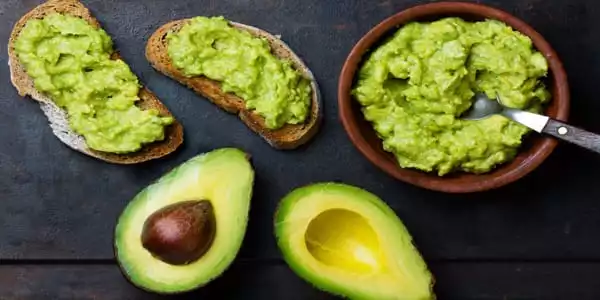A 30-year research of over 110,000 health professionals found that individuals who ate at least two servings of avocado per week had a decreased risk of cardiovascular disease than those who ate avocados just occasionally. Replacing animal items with avocado, such as butter, cheese, or bacon, was also linked to a lower risk of cardiovascular disease events.
According to new research published today in the Journal of the American Heart Association, an open access, peer-reviewed journal of the American Heart Association, eating two or more servings of avocado weekly was associated with a lower risk of cardiovascular disease, and substituting avocado for certain fat-containing foods like butter, cheese, or processed meats was associated with a lower risk of cardiovascular disease events.
Avocados contain dietary fiber, unsaturated fats, particularly monounsaturated fat (healthy fats), and other beneficial components linked to good cardiovascular health. Avocados have previously been shown in clinical trials to have a beneficial effect on cardiovascular risk factors such as high cholesterol.
The researchers believe this is the first big, prospective study to show a link between higher avocado consumption and a lower risk of cardiovascular events like coronary heart disease and stroke.
Our study provides further evidence that the intake of plant-sourced unsaturated fats can improve diet quality and is an important component in cardiovascular disease prevention. These findings are significant because a healthy dietary pattern is a cornerstone for cardiovascular health, however, it can be difficult for many Americans to achieve and adhere to healthy eating patterns.
Lorena S. Pacheco
“Our study provides further evidence that the intake of plant-sourced unsaturated fats can improve diet quality and is an important component in cardiovascular disease prevention,” said Lorena S. Pacheco, Ph.D., M.P.H., R.D.N., lead author of the study and a postdoctoral research fellow in the nutrition department at the Harvard T.H. Chan School of Public Health in Boston. “These are particularly notable findings since the consumption of avocados has risen steeply in the U.S. in the last 20 years, according to data from the U.S. Department of Agriculture.”
Researchers studied over 68,780 women (ages 30 to 55 years) from the Nurses’ Health Study and over 41,700 men (ages 40 to 75 years) from the Health Professionals Follow-up Study for 30 years. At the outset of the trial, all study participants were free of cancer, coronary heart disease, and stroke and lived in the United States. During a 30-year period of follow-up, researchers recorded 9,185 coronary heart disease events and 5,290 strokes.
Researchers evaluated individuals’ diets by administering food frequency questionnaires at the start of the trial and then every four years. They calculated avocado intake using a questionnaire item that asked about the amount and frequency of consumption. Half an avocado, or a half cup of avocado, was equal to one serving.

The analysis found:
- After controlling for a variety of cardiovascular risk variables and overall diet, study participants who ate at least two servings of avocado per week had a 16% reduced risk of cardiovascular disease and a 21% lower risk of coronary heart disease than those who never or seldom ate avocados.
- According to statistical modeling, substituting half a serving of avocado for half a serving of margarine, butter, egg, yogurt, cheese, or processed meats such as bacon was associated with a 16% to 22% decreased risk of cardiovascular disease events.
- There was no additional benefit from substituting half a serving of avocado per day for the comparable quantity of olive oil, almonds, or other plant oils.
- No significant associations were noted in relation to stroke risk and how much avocado was eaten.
The findings of the study provide extra information for health care practitioners to communicate. Pacheco suggested that physicians and other health care practitioners, such as registered dietitians, “replace some spreads and saturated fat-containing meals, such as cheese and processed meats, with avocado when they meet with patients, especially because avocado is a well-accepted food.”
The findings are consistent with the American Heart Association’s recommendation to adopt the Mediterranean diet, which consists of fruits, vegetables, grains, legumes, seafood, and other nutritious foods, as well as plant-based fats such as olive, canola, sesame, and other non-tropical oils.
“These findings are significant because a healthy dietary pattern is the cornerstone for cardiovascular health, however, it can be difficult for many Americans to achieve and adhere to healthy eating patterns,” said Cheryl Anderson, Ph.D., M.P.H., FAHA, chair of the American Heart Association’s Council on Epidemiology and Prevention.
“We desperately need strategies to increase intake of AHA-recommended healthy diets rich in vegetables and fruits, such as the Mediterranean diet,” said Anderson, professor and dean of the Herbert Wertheim School of Public Health and Human Longevity Science at the University of California, San Diego. “Although no single food is the answer to eating a nutritious diet on a regular basis, this study provides evidence that avocados may have health benefits. This is promising since it is a food item that is popular, easily accessible, attractive, and simple to incorporate in meals consumed by many Americans at home and in restaurants.”
Because the study is observational, it is impossible to prove a direct cause and effect relationship. The collection of data and the composition of the study population are two further limitations of the research. Because dietary consumption was self-reported, measurement errors may have influenced the study’s analyses. Because the majority of the participants were white nurses and health care professionals, the findings may not be applicable to other groups.





